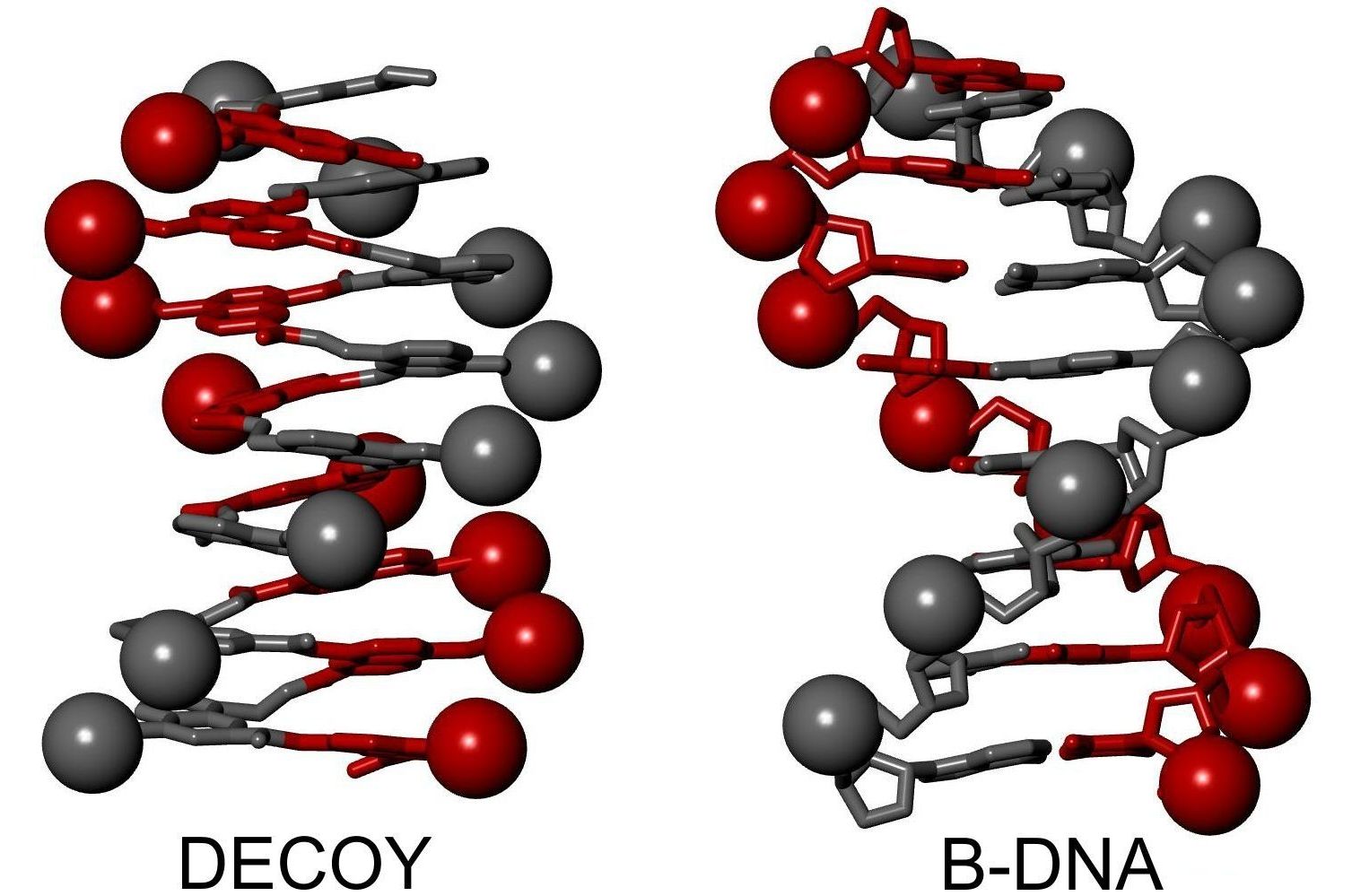Not only can synthetic molecules mimic the structures of their biological models, they can also take on their functions and may even successfully compete with them, as an artificial DNA sequence designed by Ludwig-Maximilians-Universitaet (LMU) in Munich chemist Ivan Huc now shows.
Chemist Ivan Huc finds the inspiration for his work in the molecular principles that underlie biological systems. As the leader of a research group devoted to biomimetic supramolecular chemistry, he creates ‘unnatural’ molecules with defined, predetermined shapes that closely resemble the major biological polymers, proteins and DNA found in cells. The backbones of these molecules are referred to as ‘foldamers’ because, like origami patterns, they adopt predictable shapes and can be easily modified. Having moved to LMU from his previous position at Bordeaux University last summer, Huc has synthesized a helical molecule that mimics surface features of the DNA double helix so closely that bona fide DNA-binding proteins interact with it.
This work is described in a paper published in Nature Chemistry. The new study shows that the synthetic compound is capable of inhibiting the activities of several DNA-processing enzymes, including the ‘integrase’ used by the human immunodeficiency virus (HIV) to insert its genome into that of its host cell. The successful demonstration of the efficacy of the synthetic DNA mimic might lead to a new approach to the treatment of AIDS and other retroviral diseases.










Comments are closed.